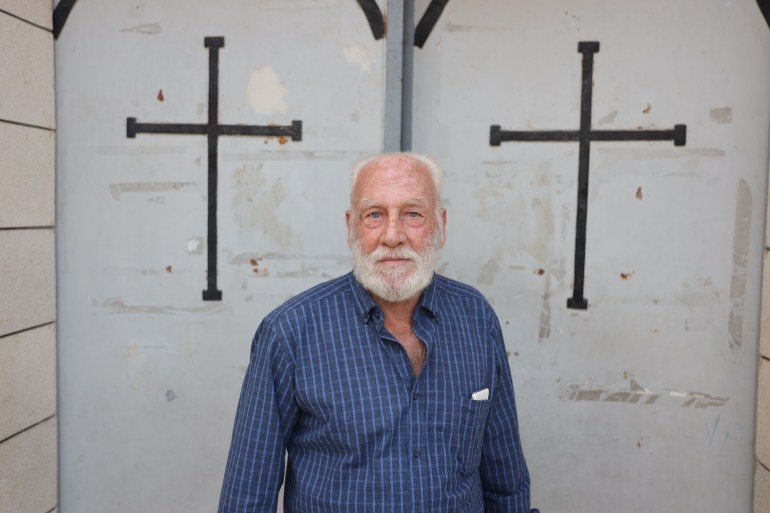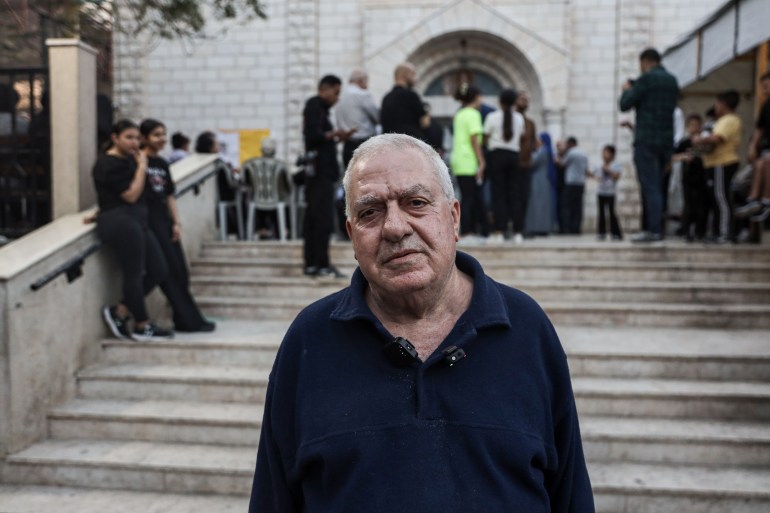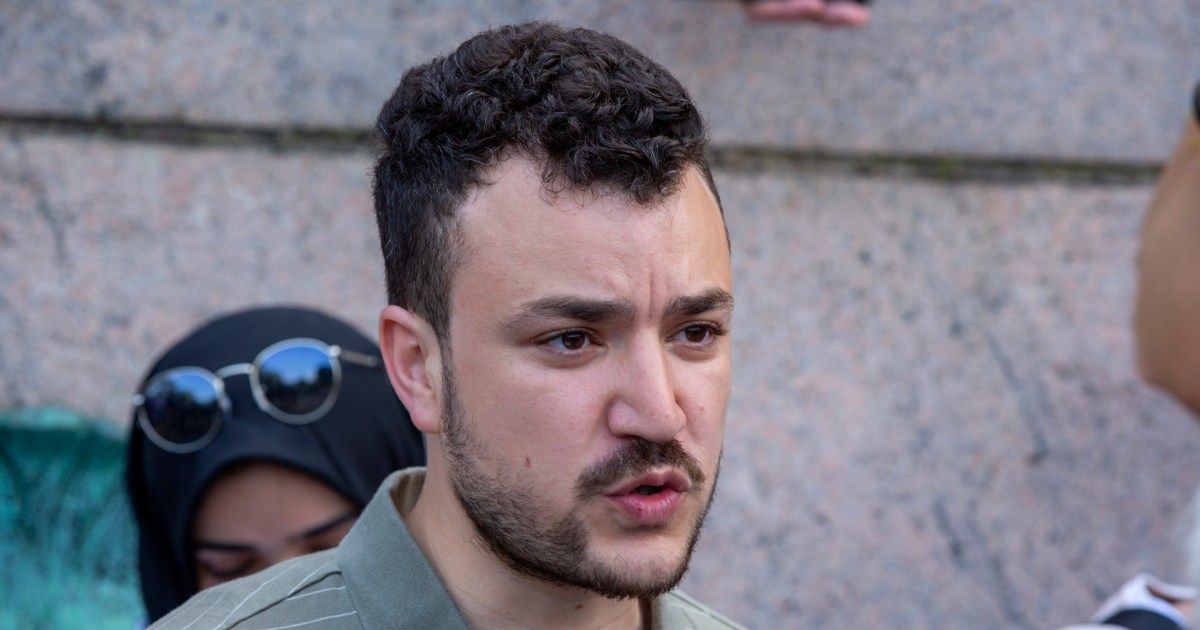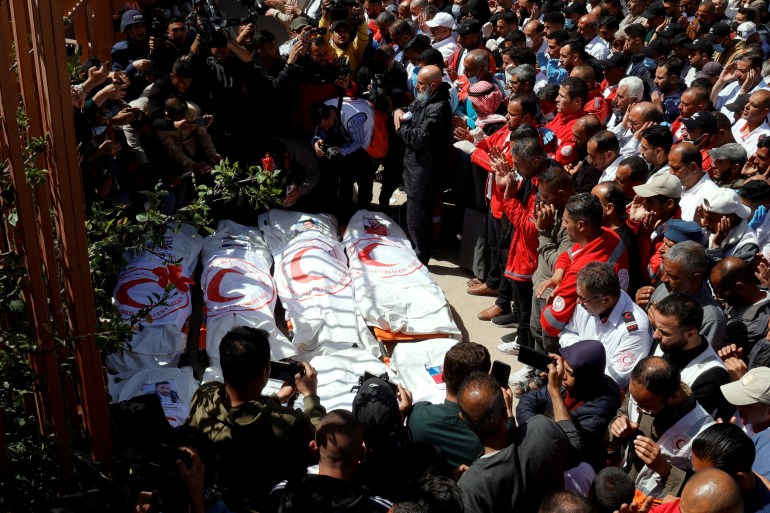‘He gave us strength’: Gaza Christians remember calls with Pope Francis | Israel-Palestine conflict News
Gaza City, Palestine – For 72-year-old Kamal Anton, Pope Francis was a source of comfort and support.
Kamal has had to shelter since the start of the war in the same Catholic church compound in Gaza City – the Holy Family Church – that his wife and daughter were shot and killed by an Israeli sniper in.
That was in December 2023, two months after the start of Israel’s war. Anton and the more than two million Palestinians in Gaza have often felt abandoned in the 18 months of conflict, in which more than 50,000 Palestinians have been killed, with hope of an end to the war still feeling remote.
But the late pope, who died aged 88 in the Vatican City on Monday after a battle with illness, was in constant contact with Gaza’s small Christian community. Before his illness, he held calls every evening with those sheltering at the church, and continued to reach out, on a less regular basis, even after he fell ill.
Kamal remembered his most recent call on Saturday, just two days before his death. Pope Francis was greeting the members of the church for Easter.
“During his call, he prayed for peace and resilience for us in Gaza,” Kamal said. “He never forgot the word ‘peace’ in any of his calls with us throughout the war. His support included all of us – Christians and Muslims alike. He prayed daily for our safety.”

Palestinian defender
A deep sense of grief and sorrow permeates the Holy Family Church, where approximately 550 displaced Palestinian Christians continue to seek shelter.
Israel has attacked the church and its neighbouring school several times during the war, including a July 2024 attack in which four people were killed. Another church, St Porphyrios Greek Orthodox Church, has also been bombed.
But the Holy Family Church is still a refuge. People gather inside the church every day, piano music accompanies hymns during prayer, and people greet Father Gabriel Romanelli. He’s the parish priest, an Argentinian who came to Gaza to lead the church 15 years ago.
After the death of the pope, those in the church have largely dressed in black, the colour of mourning.
The loss of the leader of their church was a solemn enough event, but Palestinian Christians know they have also lost one of their greatest defenders – a world leader who has long backed the Palestinian cause, and has earned the anger of Israel on a number of occasions for his defence of Palestinians.
In his final public speech delivered on his behalf on Easter, Francis called for peace in Gaza and urged the warring sides to “agree to a ceasefire, release the hostages, and provide aid to a starving people longing for a peaceful future”.
Father Romanelli told Al Jazeera that the loss of Pope Francis was a tragedy for Christians around the world, and particularly in Gaza.
He recalled that Saturday phone call with the pope.
“He said he was praying for us, supporting us, and thanked us for our prayers,” Romanelli said. “People at the church waited for his call daily. He would speak to the children and reassure them. He was deeply human and incredibly supportive, especially during the war.”
Catastrophe
Kamal noted that support from Pope Francis was also material, in the form of aid arriving in Gaza until Israel blocked all entry of goods into Gaza in March, just before it unilaterally broke a ceasefire.
“Everyone in Gaza knows how much the Vatican supported us,” Kamal said. “We always shared that aid with our Muslim neighbours too.”
Kamal’s fellow Palestinian Christian, 74-year-old Maher Terzi, is also in mourning.
Maher, who has been displaced since the first week of the war, had just sat in the mourning hall when he spoke to Al Jazeera.
“He gave us strength,” Maher said. “He told us not to be afraid, that he was with us and would never abandon us, no matter what.”
“He encouraged us to hold on to our land, and promised to help us rebuild our destroyed homes,” Maher added. “His death is a catastrophe and a shock for us during such a difficult time.”



